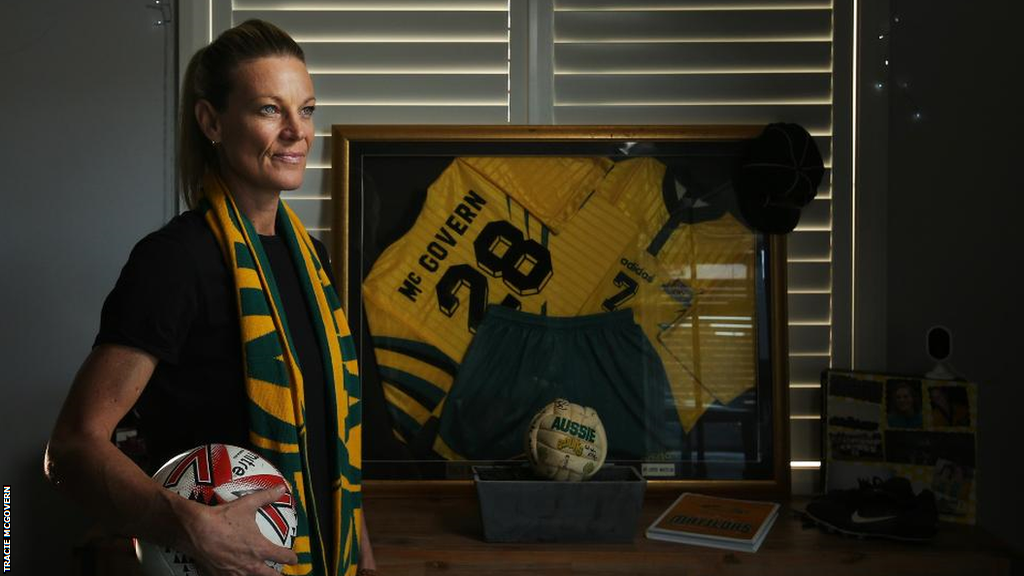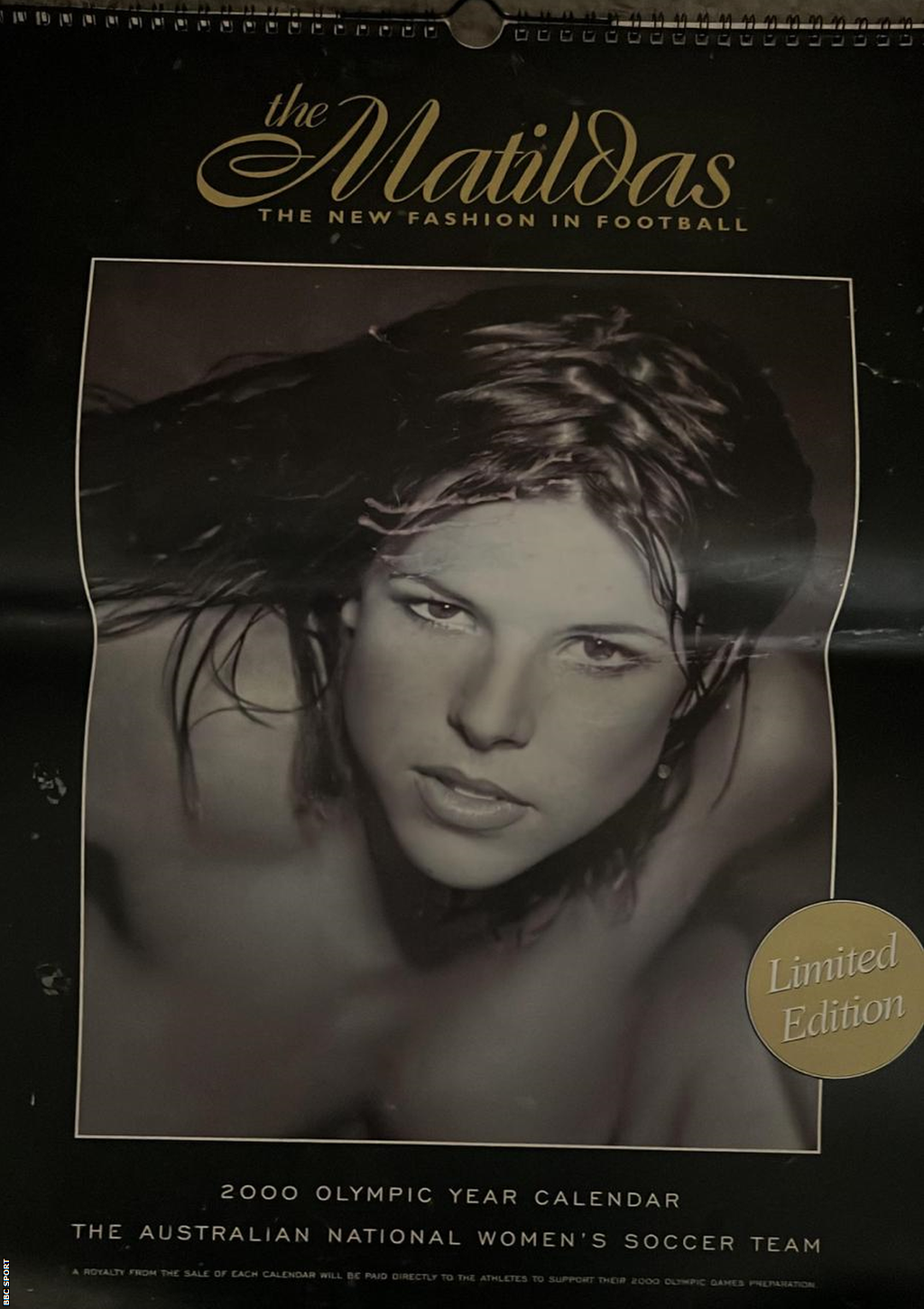Women's World Cup: Tracie McGovern has 'no regrets' over nude calendar
- Published

Former Australian footballer Tracie McGovern, known as Trae, played for the Matildas between 1997 and 2000
Fifa Women's World Cup 2023 |
|---|
Hosts: Australia and New Zealand Dates: 20 July-20 August |
Coverage: Live on BBC TV, BBC iPlayer, BBC Radio 5 Live, BBC Sounds and the BBC Sport website & app. Full coverage details; latest news |
"I don't regret it at all. I look at that photo after 20 years and I'm proud of it."
Former Australia player Tracie McGovern has a twinkle in her eye as she flicks through pictures from a calendar printed 24 years ago.
Glossy black backgrounds. No footballs in sight. Instead, a lot of nudity.
Life for the Matildas in 1999 was vastly different from today. The current team are full-time professionals, some are household names and they're all vying for glory at their home World Cup in packed stadiums.
"We didn't have the funding and the infrastructure around us that they do today," says 45-year-old McGovern, who is part of a group of former players involved in the Australian delegation for the tournament.
Many of the players from former generations were forced to fit in part-time jobs to make ends meet. They were left to sew badges on to their own kit and put leaflets through letterboxes urging people to come and watch them play.
With the Sydney 2000 Olympics on the horizon, Australian sports teams were desperate to gain some publicity before a game-changing year for the nation.
Thus the idea of a Matildas nude calendar was born. The team needed funds and they wanted recognition.
"It was mainly about the profile," says McGovern, who missed out on the Olympics through injury. "We wanted to get bums on seats at the Games, but I don't think any of us expected the attention that we got."
The calendar gained plenty of media traction, not just in Australia but across the world.
"A lot of people knew me as Miss January," laughs McGovern. Her nude, solo shot is accompanied by a personal message attributing success to the support of her friends and family.
"I had a great time, although the team shot was a little awkward," she says. "We all had our robes on, we got into position and then we threw the robes off, had the photo taken and then scrambled to get them back on."

The front cover of the calendar, which was sold to generate funding for the Australia team
McGovern is quick to point out that nude calendars were becoming more common as a fundraising tool in the 1990s. Nevertheless, the now infamous Matildas calendar was met with criticism from many corners. There was shock at just how naked it was.
"There were some feminists that felt that we had sold out," she says. "I totally respect that opinion and not all of the team took part in the calendar photoshoot. I did it for my own personal reasons. And then I did it for the greater good of the team. I think we achieved that objective."
After retiring from football, McGovern switched to the mining industry. "If I got into a conversation with a burly bloke who had no football connections, when I said I used to play, the first thing they would say to me is 'were you in the calendar?' So that's how they kind of contextualised it."
McGovern admitted sexist attitudes and her own body image issues at the time were part of the reason she decided to be photographed in the nude.
"As a young kid growing up playing football, a lot of people made comments about my physique because I'm athletic," she says.
"I had footballer's legs. I didn't want to be ashamed of my athletic body any more, so what better way to announce that and say 'here I am'? This is me naked. This is my naked truth."
A number of players declined to be interviewed about the calendar and its controversial reception. McGovern thinks for some of her former team-mates there is still a feeling of shame attached to the project.
"It was controversial, but again we got people to go to our games and we got the name out there. Could we have done it any other way? I'm not sure," she says.
"I really hope that people will start to embrace that part of history and don't feel shameful about it."
'Not your bum again mum'
For many of the current Australia squad, the 1999 calendar will be a story from beyond their living memory. McGovern thinks it's a sign of how far the game has progressed.
"The best thing is now the players don't have to do anything like that because they get the recognition. People will see them as footballers."
McGovern's eyes fill with tears as she tries to articulate what this tournament will mean for herself and the Matildas of past and present.
She says: "We have got an opportunity to transform football into the number one sport here by hosting this Women's World Cup. Australians being Australians, they are going to jump on the bandwagon."
McGovern still keeps a copy of the notorious calendar in her home outside of Sydney, so what does her family think 24 years on?
McGovern laughs again. "My kids just say 'oh no, not your bum again mum'."